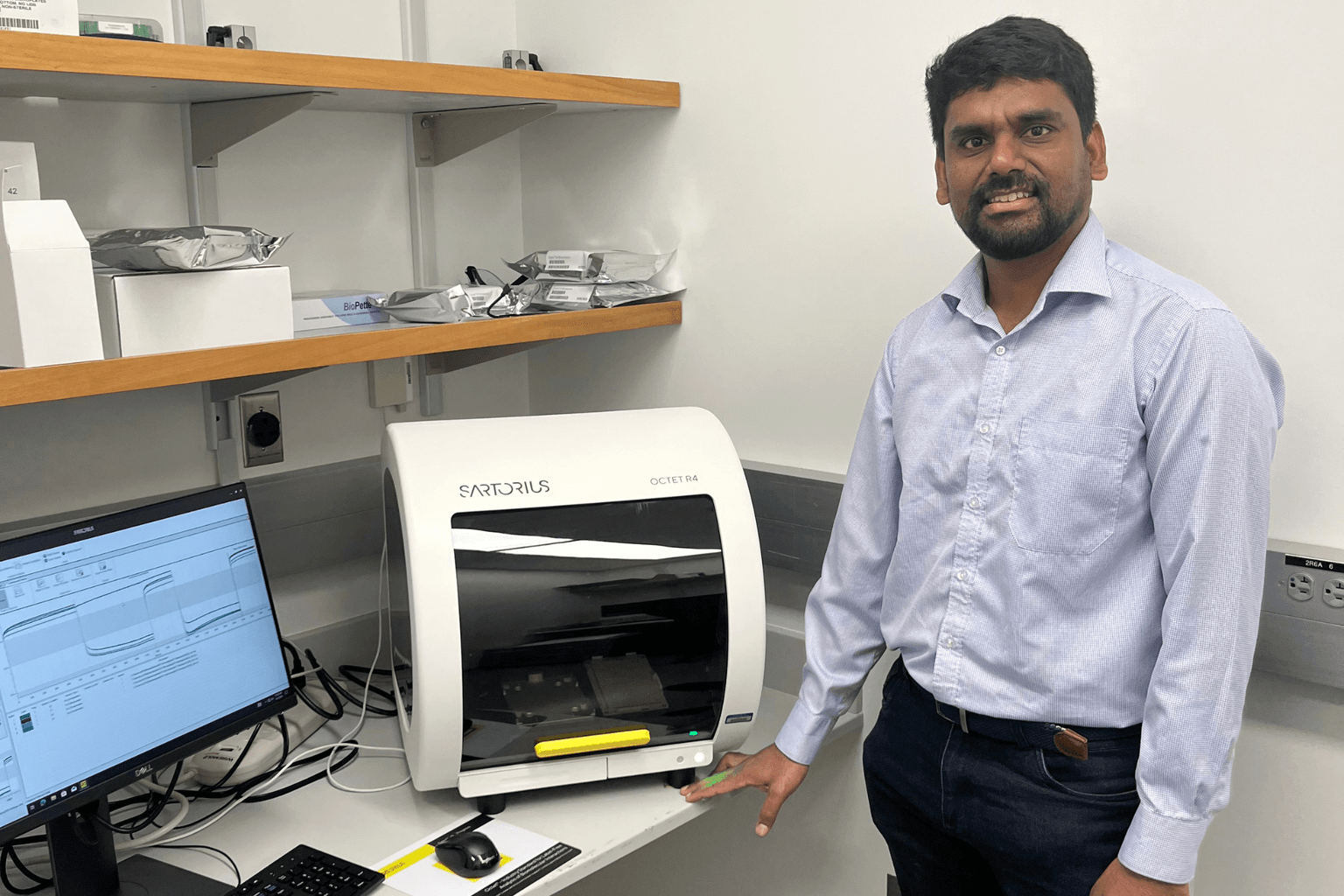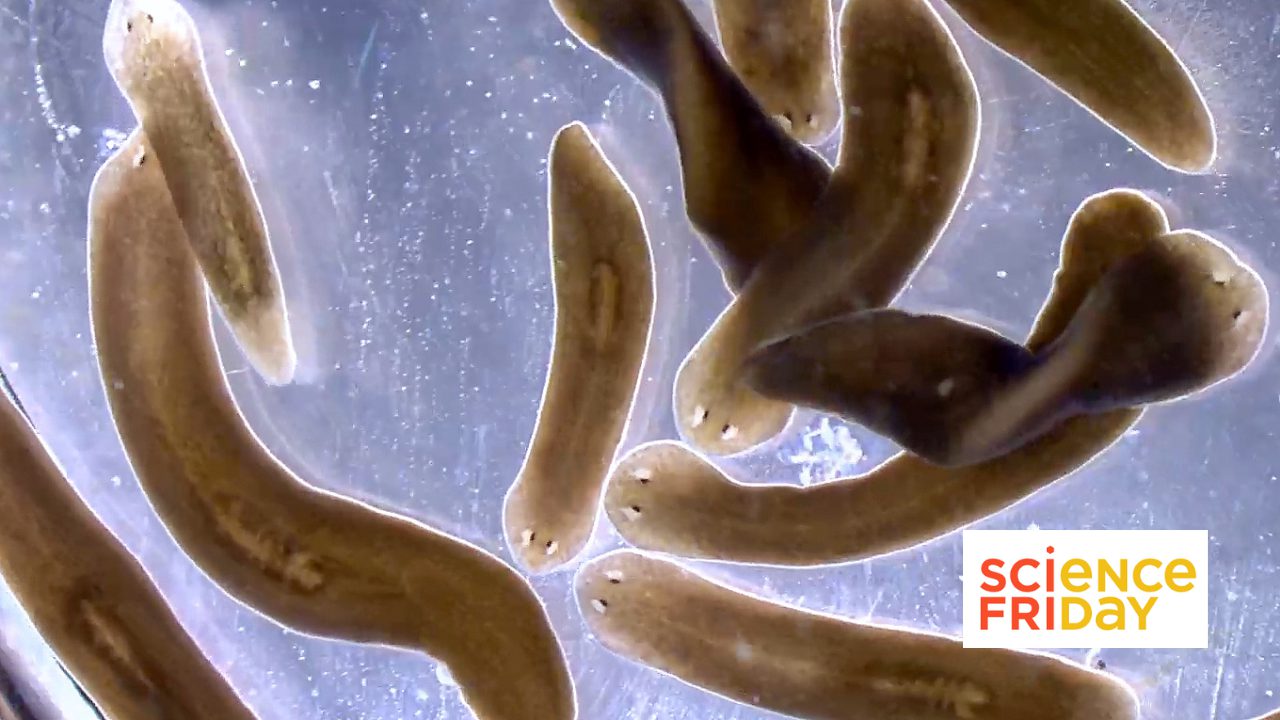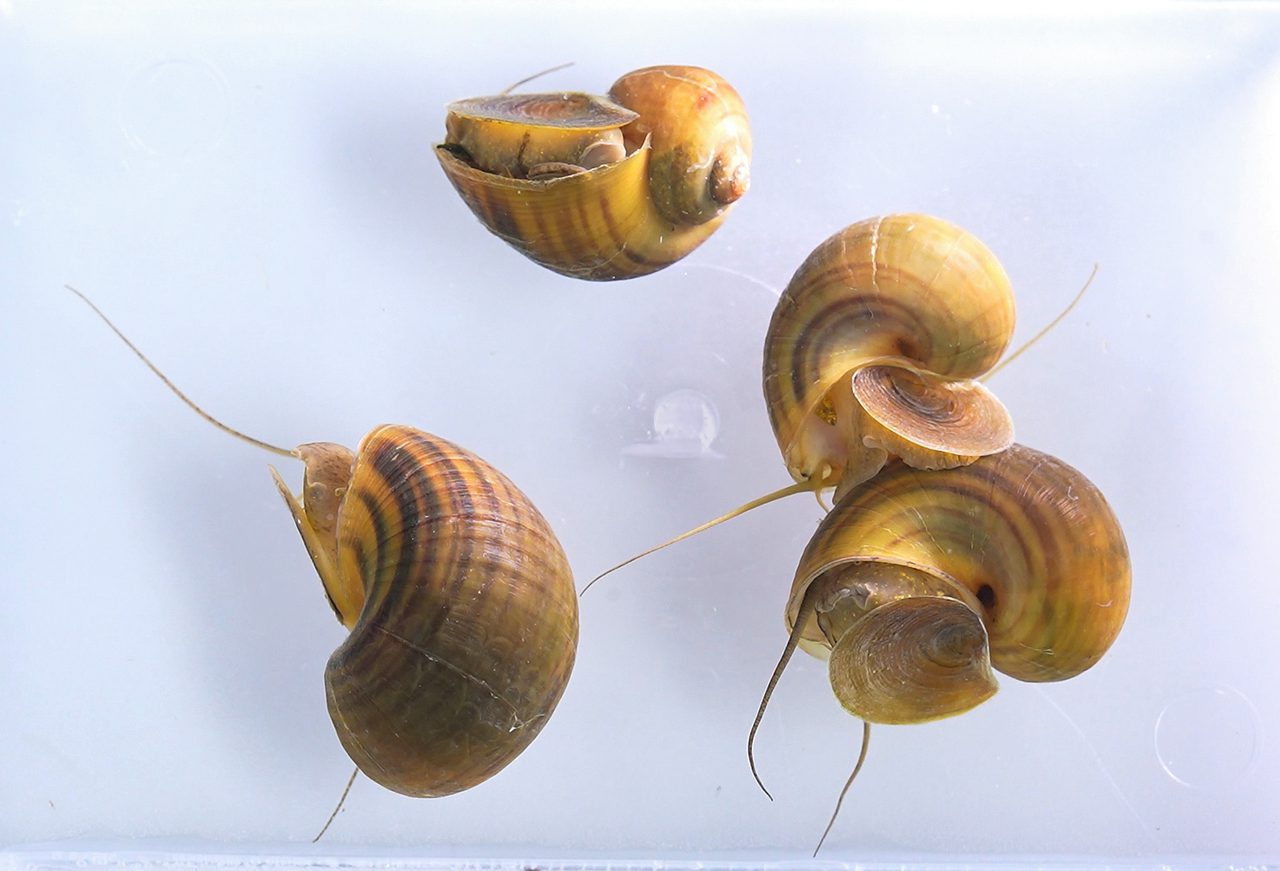What brought you to the Stowers Institute?
My scientific career has taken many turns over the years. I started as a chemical engineer running bioreactors to make bioplastics from bacteria and yeast. I made a transition to a microbiology lab while pursuing my Ph.D. at the University at Buffalo where I was introduced to the world of protein biochemistry. After graduation, I moved to the Walker Lab at MIT where I worked on bacterial ribosome assembly proteins designing and performing enzymatic assays. When my wife, Siva Sankari, joined the Stowers Institute as an Assistant Investigator, I learned about the Technology Centers with highly skilled specialists that support every lab at the Institute. I grabbed the opportunity to work in the relatively new Custom Protein Resources Technology Center, where I can utilize my expertise in protein biochemistry.
Why are you interested in your field of research?
Proteins are the workhorses of living cells, performing every vital function necessary for their survival. Understanding how they function is essential to many biological questions and fields of study. I was working with DNA replication proteins during my Ph.D. and was easily able to transition to RNA binding proteins during my postdoc due to the fundamental nature of protein biochemistry. In fact, expertise in biochemistry allows me the ability to work with projects from any model system, which is helpful at the Stowers Institute given the breadth of research organisms studied. Biochemistry is fascinating because it allows us to explore the intricate mechanisms of life at a molecular level.
What inspires you to keep working in your field?
Proteins, though merely chemical macromolecules, have the remarkable ability to interact with their environment in ways that make them seem almost alive. Each protein is unique, with specific conditions for purification, binding assays, and even preferences for buffers. This uniqueness presents distinct challenges for every project, making the research process exciting for me. The constant discovery and innovation in biochemistry keeps me engaged and motivated, as I can contribute to uncovering the secrets of life's building blocks.
What have you found most rewarding about your work?
Working with students and researchers is particularly rewarding. Their enthusiasm and fresh perspectives often lead to innovative approaches and solutions. It's incredibly satisfying and fulfilling to collaborate with researchers of varying biochemistry experience levels and contribute to their success. I share their joy when their specific scientific questions are answered. Additionally, working at the Stowers Institute has also provided me with a wealth of new knowledge about the diverse array of research organisms and the fascinating proteins they possess.
What impact do you hope your research will have?
The field of biochemistry is currently experiencing a rapid influx of innovation. With the advent of AI-driven rapid protein structure predictions, more researchers are delving into biochemistry questions. In the AI era, biochemistry is poised to make unprecedented strides. AI tools are enhancing the rate of data analysis, pattern recognition, and predictive modeling. Biochemistry tools must also keep pace with these innovations to meet the needs for experimental evidence provided by the large amounts of predictive data. We are well-positioned within the Institute to embrace this challenge and propel the field forward.




